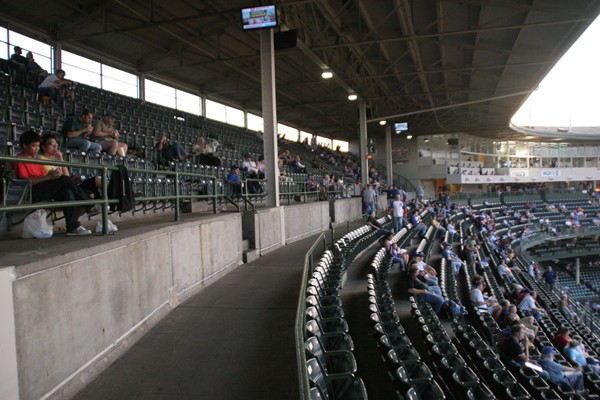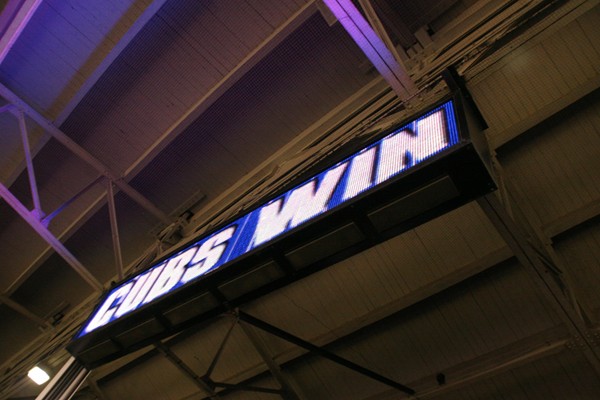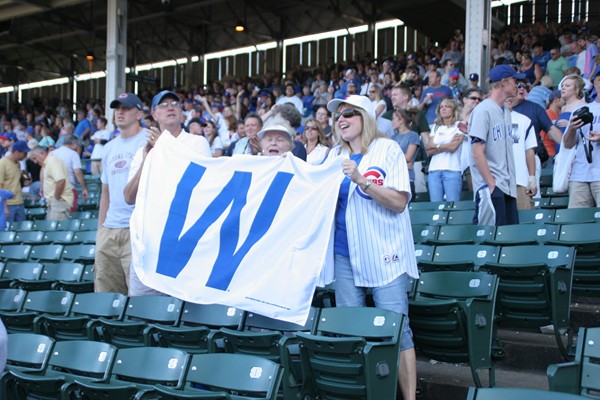Perhaps we should look at Atlanta's example:
Thirteen years later, the financial legacy of the Olympics in Atlanta is harder to detect. Like many major cities, Atlanta has fallen victim to the recession, forced to lay off teachers and city workers while slashing services. The City Council recently voted to raise property taxes to cover a $56 million budget deficit.
Winning the Olympic bid catapulted Atlanta into the big leagues, giving it name recognition around the globe. Atlanta's $1.7 billion private-funded investment in hosting the games helped revitalize its sluggish downtown and poured $5 billion into the metropolitan area's economy during the next decade, according to the Metro Atlanta Chamber of Commerce.
Atlanta's cost was less than half of the $4.8 billion Chicago has estimated it will need to raise if the city is awarded the 2016 Olympic Games.
In sum, no one knows. The Tribune doesn't analyze with much rigor what parts of Atlanta's economic problems come from unrelated factors. Nor do they tease out the direct economic benefits or costs of hosting the games. In short, it's one more frustratingly unhelpful piece of journalism about local politics.
I think our problems and our strengths look nothing like Atlanta's. Possibly Los Angeles might have been a better model; it's hard to say. I honestly don't know whether Chicago will benefit or lose from 2016. No one does. But I think we'll find out, whether we want to or not.
Continuing from Saturday, here are the actual values of the items in the post. How did you do? Did you get 9 of 10, indicating you have a good handle on your ability to estimate?
| Fact |
Units |
Actual |
| GE total revenues (2003) |
$ bn |
$134 bn |
| Michael Eisner's salary (2003) |
$ |
$1m |
| Microsoft employees worldwide (2004) |
thousands |
57k |
| Starbuck's stores worldwide (2004) |
stores |
6228 |
| McKinsey Group annual revenue per consultant (2001) |
$ |
$500k |
| United Auto Workers total membership, non retired (2004) |
thousands |
710k |
| Blockbuster share of U.S. video rentals (2003) |
% |
40% |
| Canadian citizens per donut shop (2001) |
people |
9,000 |
| Ameritrade total daily trades by members (2004) |
thousands |
135k |
| Berkshire-Hathaway cumulative returns (1999-2004) |
% |
26% |
We had an interesting lecture this morning on overconfidence and decision making. Here's a quiz: guess the range that you can say, with 90% confidence, contains the correct value. So for example, if the question were "Parker's weight in kilograms," you could guess a range of 10 to 40, which means you are 90% confident that Parker weighs between 10 and 40 kilos. (You'd be right; he weighs 25 kilos.)
Here are the questions our prof hit us with today:
| Fact |
Units |
Low end? |
High end? |
| GE total revenues (2003) |
$ bn |
|
|
| Michael Eisner's salary (2003) |
$ |
|
|
| Microsoft employees worldwide (2004) |
thousands |
|
|
| Starbuck's stores worldwide (2004) |
stores |
|
|
| McKinsey Group annual revenue per consultant (2001) |
$ |
|
|
| United Auto Workers total membership, non retired (2004) |
thousands |
|
|
| Blockbuster share of U.S. video rentals (2003) |
% |
|
|
| Canadian citizens per donut shop (2001) |
people |
|
|
| Ameritrade total daily trades by members (2004) |
thousands |
|
|
| Berkshire-Hathaway cumulative returns (1999-2004) |
% |
|
|
Also guess how many of these you got right.
Answers tomorrow.
The Ferris Bueller house in Highland Park may be torn down:
Built from 1952 until 1954 and designed by architect A. James Speyer, the Highland Park home and pavilion that appeared in the 1986 movie "Ferris Bueller's Day Off" is for sale for $2.3 million. It is at risk of being torn down, Landmarks Illinois officials say, because several inquiries have been made regarding the demolition of the house and a possible lot split.
Tom Friedman on why the U.S. is falling behind in alternate-energy research:
The reason that all these other countries are building solar-panel industries today is because most of their governments have put in place the three prerequisites for growing a renewable energy industry: 1) any business or homeowner can generate solar energy; 2) if they decide to do so, the power utility has to connect them to the grid; and 3) the utility hasto buy the power for a predictable period at a price that is a no-brainer good deal for the family or business putting the solar panels on their rooftop.
Regulatory, price and connectivity certainty, that is what Germany put in place, and that explains why Germany now generates almost half the solar power in the world today and, as a byproduct, is making itself the world-center for solar research, engineering, manufacturing and installation. With more than 50,000 new jobs, the renewable energy industry in Germany is now second only to its auto industry. One thing that has never existed in America — with our fragmented, stop-start solar subsidies — is certainty of price, connectivity and regulation on a national basis.
But hey, even though we're slipping behind just about every other rich country in the world, at least we have the Free Market. (I am reminded of the old Kit-Kat commercials from the 1970s: "We ain't got class, but we got taste!")
Via Calculated Risk, tomorrow the Irish Finance Minister will explain, somehow, what Ireland's government will do with the €90 bn in real estate loans now crippling the country's economy:
In what may be the biggest financial gamble in 87 years as a sovereign state, the government will become the owner of loans for property developments that have plunged in value.
Ireland is suffering the worst economic slump of any developed nation since the Great Depression, according to the Economic & Social Research Institute in Dublin.
The National Asset Management Agency, known as NAMA, will buy 18,000 loans at a discount from lenders led by Allied Irish Banks Plc and Bank of Ireland Plc. The agency will manage the loans, which amount to about half of Ireland’s gross domestic product. Should any of the 1,500 borrowers default, the agency can seize the land or other security put up.
(Emphasis mine.)
To put that in perspective, imagine if the U.S. government took over $8.5 trillion in loans. That's the equivalent.
The Cubs won again tonight, against the Milwaukee Brewers in a very fast 8 1/2 innings. Ryan Dempster had a no-hitter for 4 2/3 innings, and a solo homer by Derek Lee got the Cubs on the board.
Oddly, the park was as empty as I've seen this year. I say "oddly" because (a) it was a gorgeous, clear, 24°C evening, and (b) this was the upper deck ten minutes before the game started:

That was a troubling sign. This was not:

Of course, it hardly matters, with the Cubs now 10 games out with fewer than 20 to play. Maybe if St. Louis keep losing we'll have another opportunity to get swept by the Dodgers in the playoffs. But probably not.
Friends called me on Saturday afternoon to invite me to yesterday's game, which had perfect weather, a Cubs win, and really friggin' good seats (Field Box, section 130).
Ted Lilly got the win:

In box seats, people bring their own "W" flags:

I left a word out, which I hate, because you should read Josh Olson's recent piece in the Village Voice:
You are not owed a read from a professional, even if you think you have an in, and even if you think it's not a huge imposition. It's not your choice to make. This needs to be clear--when you ask a professional for their take on your material, you're not just asking them to take an hour or two out of their life, you're asking them to give you--gratis--the acquired knowledge, insight, and skill of years of work. It is no different than asking your friend the house painter to paint your living room during his off hours.
Or, my favorite lines: "It rarely takes more than a page to recognize that you're in the presence of someone who can write, but it only takes a sentence to know you're dealing with someone who can't. (By the way, here's a simple way to find out if you're a writer. If you disagree with that statement, you're not a writer. Because, you see, writers are also readers.)"